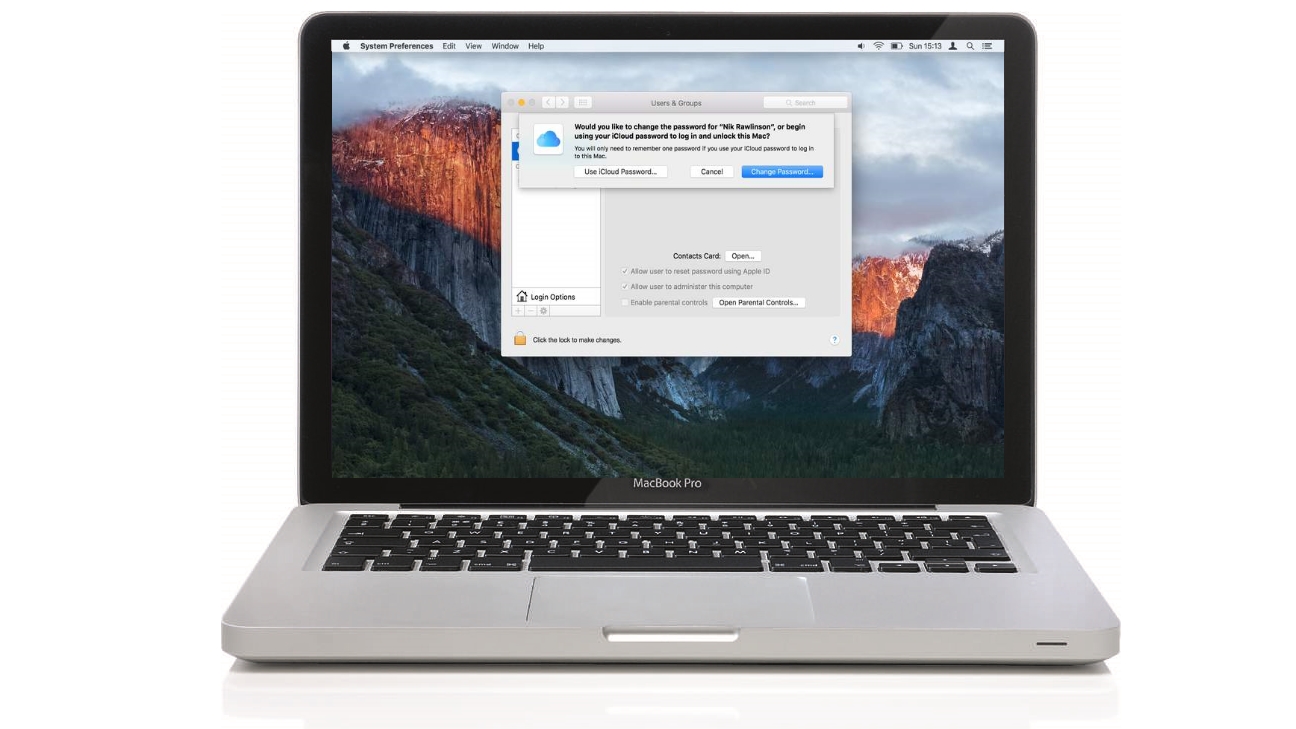How To Get Passwords On Mac
The best ways to save passwords on Mac
iCloud Keychain isn't the only solution

(Image: © Apple)
Passwords are a necessary part of online life. Whether for websites, bank accounts, Wi-Fi authentication, or daily logins, passwords are intended to protect our most important information from would-be hackers and thieves.
Gone are the days, however, when all that was necessary was a simple password you could repeatedly use across the internet. Luckily, you don't have to remember or write down all of those complex passwords that are now required because there are password managers and generators that do this automatically.
Apple's built-in iCloud keychain is just one of the password options available for Mac users. There are also third-party solutions worth considering, including LastPass, 1Password, Dashlane, and more.
What password solutions should offer
Things can feel overwhelming for everyday Mac users looking for a password solution once you look beyond the basics. At one time, previous iterations of the same software titles (and others) almost entirely focused solely on giving you the ability to store username and login information that were accessible in just a few clicks.
Today's most popular tools include that ability and much more, including autofill, a username/password generator, whether current logins are part of an active data leak, access across multiple platforms and devices, family sharing, and more. Ultimately, it's up to you to decide which solution is best for you.

iCloud Keychain
If you only use Apple devices, the best solution might be the one that's included for free on every Mac, iPhone, and iPad, iCloud Keychain.
Apple's native password tool addresses two primary needs. It suggests complex passwords to use and keeps track of those passwords across multiple devices for later use. Those passwords are only accessible once you enter your Apple ID login and password, and those are protected using two-factor authentication and encryption.
One of the iCloud Keychain's newest features is monitoring existing logins to ensure they haven't been involved in a data breach. When these breaches are discovered, you'll receive a notice suggesting a password change. You'll also get alerted whenever a password is used more than once across services.
iCloud Keychain isn't perfect, however. Like most things Apple, the information is only accessible on Apple devices. And, even on those devices, you can't use the info seamlessly on third-party browsers like Google Chrome and Microsoft Edge like you can on Apple Safari. The iCloud Keychain password generator is also somewhat basic since it doesn't let you adjust requirements such as password length.
Regardless, iCloud Keychain is free, integrated, easy to use, and a nearly perfect solution for Apple-only users.

LastPass
Until recently, many LastPass customers would have been content with sticking with the company's free package, which allowed you to store login information and passwords, then sync across both mobile and desktop. That's no longer the case, unfortunately. However, it's more in line with what other companies are now offering for non-paying customers. Freebie users must now decide whether to keep track of personal information on mobile (including smartphones and tablets) or desktop, but not both.
Even with this limitation, free membership in LastPass has many advantages, including a password generator, unlimited and secure password storage, and sync across similar devices.
Suppose you want everything LastPass has to offer. In that case, you should consider the $36/year premium plan, which includes all of the features above plus unlimited devices, 1GB of cloud storage, a security dashboard that looks for data breaches that might affect you, dark web monitoring, and more. It even works with multifactor authentication with the YubiKey. A $48/year family plan offers everything you see above for up to six users.
Unlike iCloud Keychain, the LastPass reach goes beyond Apple devices. It also offers support for Windows, Linux, and Android. There are also browser extensions for Safari, Chrome, Firefox, Edge, and Opera.
Besides the limits recently imposed on the free version, LastPass has fought itself in hot water on at least two occasions in the past three years. The first was the 2019 discovery of a security flaw that was quickly patched and resolved. The second issue happened more recently (February 2021) when a privacy advocacy group found seven web trackers in the LastPass mobile app. The trackers included those from Google Analytics, AppsFlyer, and Mixpanel, among others.
After the discovery of the trackers, LastPass released a statement noting, "These trackers are industry-standard mobile analytics tools and are used for a limited purpose -- to collect aggregated statistical data about how LastPass is used to help us improve and optimize the product to deliver the best user experience."
Despite the tracking information coming to light, LastPass remains one of our favorite password managers overall and the best iCloud Keychain alternative for Mac users.
See our full LastPass review

1Password
Also available across multiple platforms, 1Password is another long-running password manager that offers plenty of perks for users. Unlike LastPass, however, 1Password doesn't offer a free plan. Instead, you must pay $36/year for all of the benefits. For this, you'll find standard features like password storage and generation, browser extensions, 1GB of document storage, multi-factor authentication, and more.
There's also a travel mode that allows you to remove sensitive 1Password data at will that's easily restorable using one click. 1Password also includes WatchTower, which lets you receive alerts for compromised websites and vulnerable passwords.
For Mac users, 1Password provides Touch ID support. There's also Face ID support on compatible MacBook and iMac computers.
A $60/year family plan covers five members and offers the sharing of passwords, credit cards, and the like, as needed. Each family member also gets their own vault to store individual information. Guest accounts are also available.
1Password also promises that only you can access your data. It notes, "We don't use it, we don't share it, and we don't sell it. You're our customer, not our product."
See our full 1Password review

Dashlane
Currently, TechRadar's No.1 password manager overall, Dashlane is also worth considering for Mac. It offers free and paid versions that pretty much divide between whether you want coverage on one or multiple devices.
The free version includes a password generator, a password health monitor, auto-fills, and more. Unfortunately, it limits logins/passwords to 50 accounts.
Dashlane, not surprisingly, leaves its best tools for its premium plans that come in three varieties. The $36/year Essentials package gives you unlimited passwords, secure notes, an automatic password changer, and access to two devices.
For $60/month, Dashlane adds dark web monitoring, unlimited devices, 1GB of storage, and more. The $90/year family plan gives you six separate accounts that you can manage as a group or individually.
Dashlane is expensive, with its premium plan costing the same as what others charge for family plans. Depending on your needs, however, the cost is worth it.
See our full Dashlane review
Other solutions
For other password solutions on Mac, consider our yearly lists:
- Best password managers: Free and paid software to secure your passwords
- Best business password managers
- Get an extra layer of security with a Mac VPN

Bryan M. Wolfe is a staff writer at TechRadar, iMore, and wherever Future can use him. Though his passion is Apple-based products, he doesn't have a problem using Windows and Android. Bryan's a single father of a 14-year-old daughter and a puppy, Isabelle. Thanks for reading!
How To Get Passwords On Mac
Source: https://www.techradar.com/how-to/the-best-ways-to-save-passwords-on-mac
Posted by: denniefout1942.blogspot.com

0 Response to "How To Get Passwords On Mac"
Post a Comment